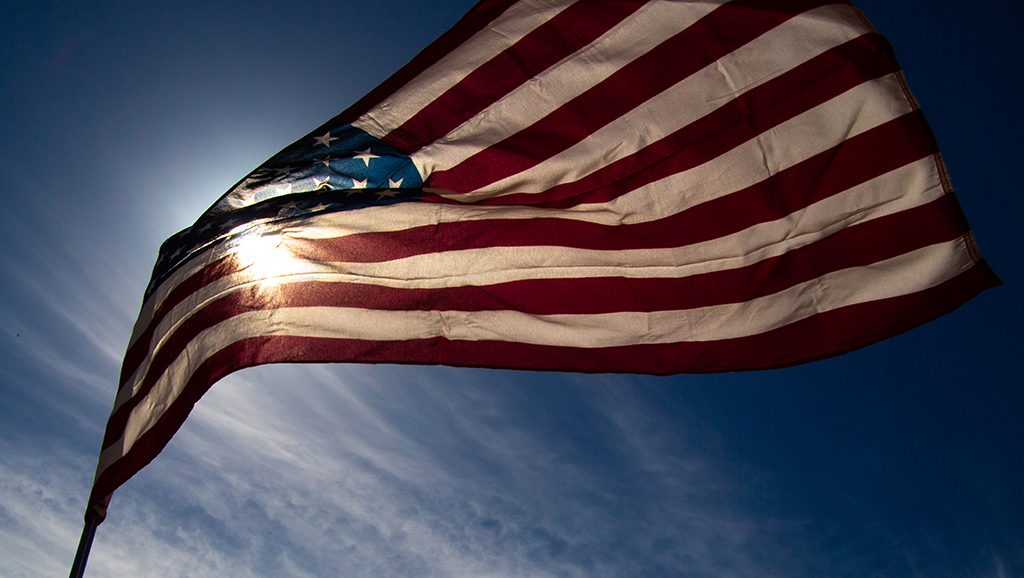With Independence Day occurring at a tumultuous time marked by a global pandemic and a national crisis over racial injustice, Climate gave local contributors carte blanche to write their perspectives on what makes America special. We will be publishing our contributors’ American Stories now through July 4. Keep an eye out for these unique and personal pieces.
—
Before I was a writer, I was an Air Force brat, and before I was an Air Force brat, my father was a mechanic in Northern China in World War II, keeping P-38s flying through daily strafing. He spent his 23rd birthday on a freight train, being evacuated beyond the reach of the Japanese.
A year before Pearl Harbor, Daddy had volunteered for the Army Air Corps. And yet when that terrible war ended, he couldn’t find a calling as compelling as “the service.” After a brief hiatus, he reenlisted for a 20-year career in the United States Air Force. That meant for the duration, every few years he and Mother —and subsequently three daughters —packed up everything to go wherever Uncle Sam ordered. No arguments. Mother and Daddy had to listen to three squabbling little girls in the back seat (“Your skirt’s on my dress!”) during those long cross-country drives from one godforsaken military base to the next, in service of our nation.
When I think of the best of America, I think of our military, and I’m not alone. The military consistently earns the highest rank of all 15 institutions in Gallup’s annual rating.
Duty. Honor. Valor. Service above self.
They’re not the animating ideals for your average occupation. Every person who leaves behind civilian life to volunteer takes an oath to support and defend the Constitution of the United States. That, of course, doesn’t mean every soldier and sailor meets the highest standards at all times; likewise, the particular wars and missions they’re sent out on may be misguided. But our democracy depends on an apolitical military which answers the call of duty, whatever it may be.
My first learning moment came toward the end of Daddy’s assignment with NATO in France in the mid-1950s. It hardly needs pointing out that this was a country we’d saved not many years before from the Nazis. Yet on a drive through the countryside, our family saw a message someone painted on a retaining wall: “Yankee Go Home.” He shrugged it off, like all solid, turn-the-other-cheek citizen-soldiers are expected to do.
Daddy’s last Air Force stint took place during the Cuban Missile Crisis, when the five of us were living at a radar station in the Mojave Desert. I was the “paperboy” delivering the Los Angeles newspapers to 20 homes at the base, every morning bearing frightening updates about a nuclear strike that could well have taken out nearby Edwards Air Force Base. And us too. My sixth-grade science fair project was about how to tell when it’s safe to come out after a nuclear blast. Our little base was on constant high alert, yet the average American couldn’t possibly have realized how military personnel at remote posts all over the world were quietly going about the business of preparing for war. They still are.
Like many of my generation, I questioned why we were in Vietnam and was swept up in arguments that were more emotional than rational. But the regard I always maintained for our military has deepened over the decades, especially in this time of all-volunteer forces. In putting others first, they and their families sacrifice comfort, wealth and personal independence; the military personnel, sometimes even their lives. Our military leads the way with humanitarian assistance after disasters, such as the Indian Ocean earthquake and tsunami in 2004, when service members delivered food and other supplies to devastated Southeast Asian countries.
When I think of “public service,” this grown-up brat salutes the American military.
Climate magazine editor Janet McGovern is a former newspaper reporter and book author.
Perspectives:






